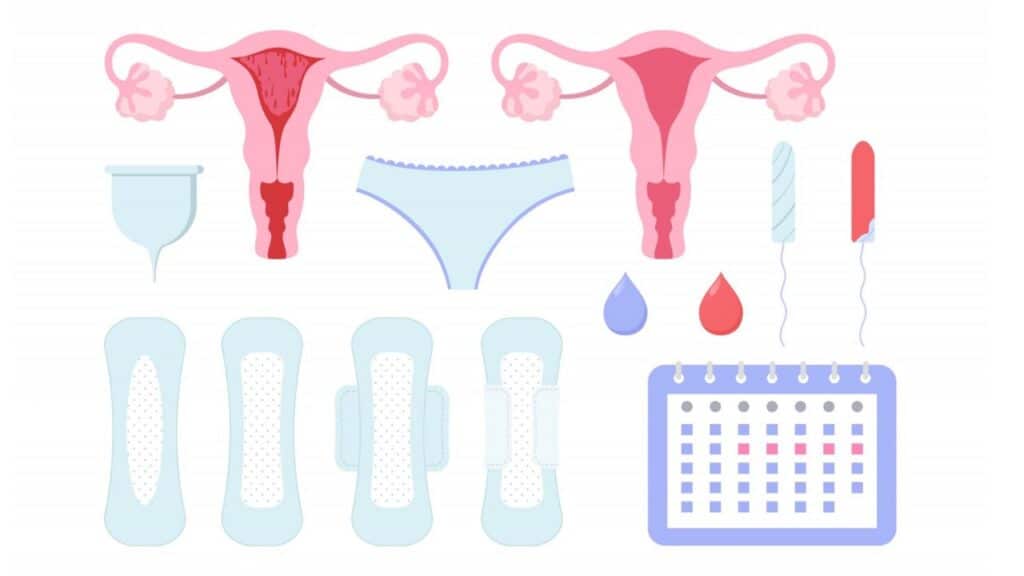Periods are an essential part of a woman’s reproductive health. However, irregular periods or missed cycles can cause anxiety and impact overall well-being. While several factors influence menstrual health, including stress, hormonal imbalances, and lifestyle choices, diet plays a significant role in regulating periods. In this article, we explore what to eat to get periods and how specific foods can naturally support a regular menstrual cycle. We’ll also share tips backed by research to ensure your body gets the nutrients it needs for healthy periods.
Understanding Irregular Periods: Causes and Impact
An irregular period is when the menstrual cycle deviates from the average 28-day cycle. Some women experience early, delayed, or skipped periods due to various reasons, including:
- Hormonal imbalances (e.g., polycystic ovary syndrome – PCOS)
- Stress and lifestyle changes
- Sudden weight loss or gain
- Thyroid disorders
- Poor diet lacking essential nutrients
A study by the World Health Organization (WHO) highlights that 20-30% of women worldwide experience irregular periods at some point in their reproductive years. Addressing this issue with proper nutrition can help in restoring balance.
What to Eat to Get Periods? Key Foods That Help Regulate Menstrual Cycles
1. Iron-Rich Foods
Iron is crucial for maintaining healthy blood levels, which supports hormonal balance and ensures a smooth menstrual cycle.
Best Sources:
- Spinach
- Lentils
- Red meat
- Pumpkin seeds
How It Helps:
Iron deficiency can lead to anemia, causing delayed periods. Eating iron-rich foods ensures the body has enough iron to support regular menstruation.
2. Vitamin C-Rich Foods
Vitamin C is known to increase estrogen levels and reduce progesterone, promoting uterine contractions to start menstruation.
Best Sources:
- Oranges
- Lemons
- Strawberries
- Broccoli
How It Helps:
Vitamin C can help trigger periods if they are delayed due to hormonal imbalance.
3. Papaya
Papaya contains carotene, which stimulates the production of estrogen and can induce early periods.
How to Consume:
- Eat raw papaya
- Blend it into a smoothie
- Take it as a salad ingredient
Fun Fact:
In traditional remedies, unripe papaya is often recommended to induce menstruation naturally.
4. Ginger and Turmeric
Both ginger and turmeric have anti-inflammatory properties that regulate hormones and improve blood circulation.
How to Use:
- Boil ginger in water and drink it as tea
- Add turmeric to warm milk
Research Insight:
A study published in the Journal of Complementary Medicine found that ginger consumption significantly reduced menstrual pain and helped regulate cycles.
5. Pineapple
Pineapple contains bromelain, an enzyme that can soften the uterine lining, promoting the onset of periods.
How to Eat:
- Fresh pineapple slices
- Pineapple juice
Tip:
Avoid canned pineapple, as it may lose its beneficial enzymes during processing.
6. Nuts and Seeds
Nuts and seeds are rich in omega-3 fatty acids and vitamin E, essential for hormonal balance.
Best Options:
- Almonds
- Flaxseeds
- Chia seeds
How They Help:
Omega-3 fatty acids reduce inflammation and promote regular cycles by supporting hormonal balance.
7. Herbal Teas
Certain herbal teas, such as parsley tea and fennel tea, are traditional remedies for inducing periods.
How to Make:
- Boil parsley or fennel in water
- Strain and drink it warm
Note:
Consult a healthcare provider before consuming herbal teas if you are pregnant or have underlying health conditions.
Sample Diet Plan to Regulate Periods
| Meal | Food | Nutritional Benefits |
|---|---|---|
| Breakfast | Papaya smoothie + Almonds | Vitamin C, Omega-3 Fatty Acids |
| Mid-Morning | Orange + Chia seed pudding | Estrogen boost, Fiber |
| Lunch | Spinach salad + Lentil soup | Iron, Vitamins |
| Evening Snack | Ginger tea + Pumpkin seeds | Anti-inflammatory, Iron |
| Dinner | Grilled salmon + Broccoli | Omega-3, Vitamin C |
Foods to Avoid for Healthy Periods
While knowing what to eat to get periods is important, it’s equally crucial to avoid certain foods that can delay periods:
- Processed Foods: High in preservatives and harmful fats, which can disrupt hormonal balance.
- Sugary Drinks: Excess sugar can cause insulin spikes, impacting menstrual health.
- Caffeine: Excessive caffeine intake can increase stress levels, leading to delayed periods.
What Does Science Say About Diet and Periods?
Research shows that a balanced diet rich in whole foods can positively impact menstrual health:
- A 2019 study in the Journal of Women’s Health found that women who consumed more fruits and vegetables had a 30% lower chance of experiencing irregular periods.
- A 2020 review in the American Journal of Obstetrics and Gynecology emphasized the role of iron, calcium, and vitamin D in supporting regular menstrual cycles.
Unlock the Secret to Luscious Locks: 10 Powerful Home Remedies for Hair Growth
Lifestyle Tips to Support a Healthy Menstrual Cycle
In addition to diet, these lifestyle changes can help regulate your periods:
- Maintain a Healthy Weight: Sudden weight changes can cause hormonal imbalances.
- Exercise Regularly: Moderate exercise can help manage weight and reduce stress.
- Reduce Stress: Practice yoga, meditation, or mindfulness techniques to reduce cortisol levels.
- Sleep Well: Ensure you get 7-8 hours of restful sleep each night to support hormonal health.
When to See a Doctor
If your periods are consistently irregular despite dietary and lifestyle changes, consult a healthcare provider. Some conditions, like PCOS or thyroid disorders, may require medical intervention.
Signs You Shouldn’t Ignore:
- No periods for 3 months
- Severe cramps or heavy bleeding
- Excessive facial hair or acne (signs of PCOS)
- Sudden weight gain or loss
Conclusion: Eat Right for Healthy Periods
Knowing what to eat to get periods can make a significant difference in your menstrual health. A balanced diet rich in iron, vitamin C, and healthy fats, combined with a healthy lifestyle, can naturally regulate your cycle. Remember, the key to healthy periods lies in consistency and balance. While food can support menstrual health, always seek professional advice for persistent irregularities.

